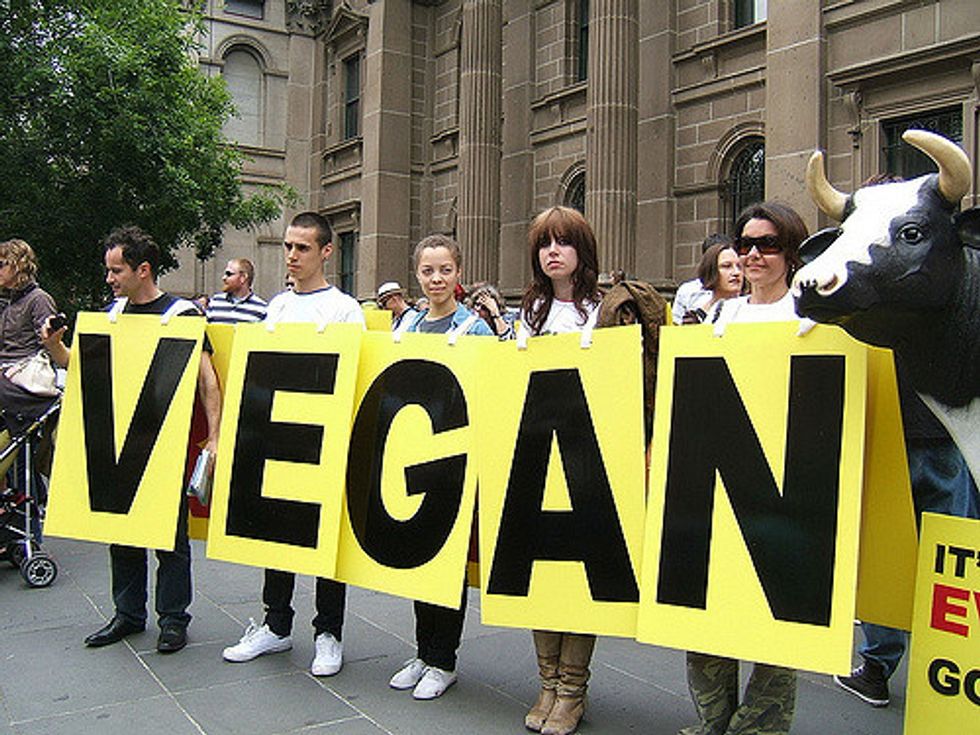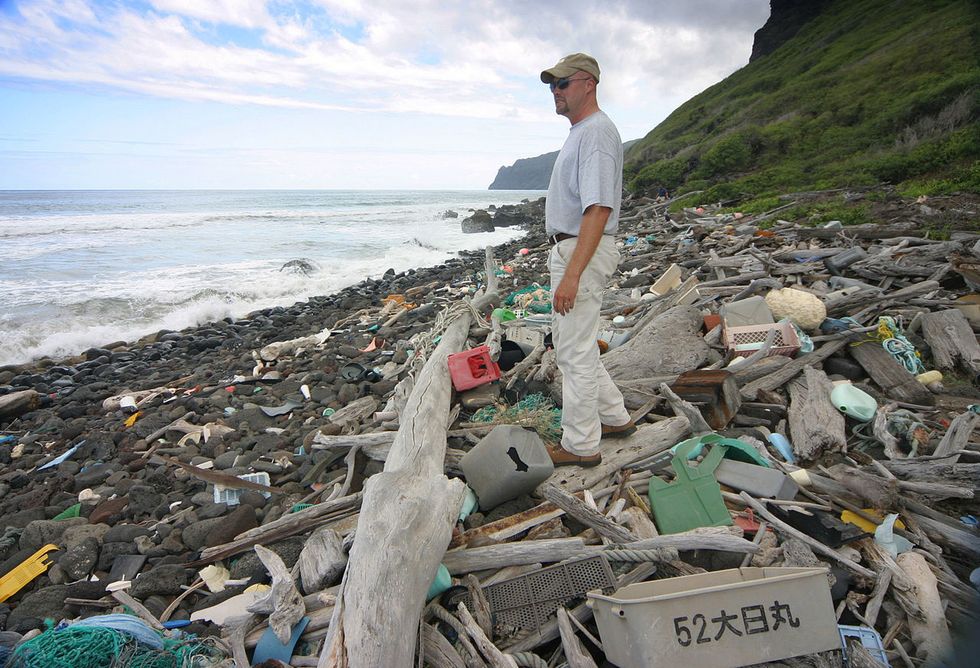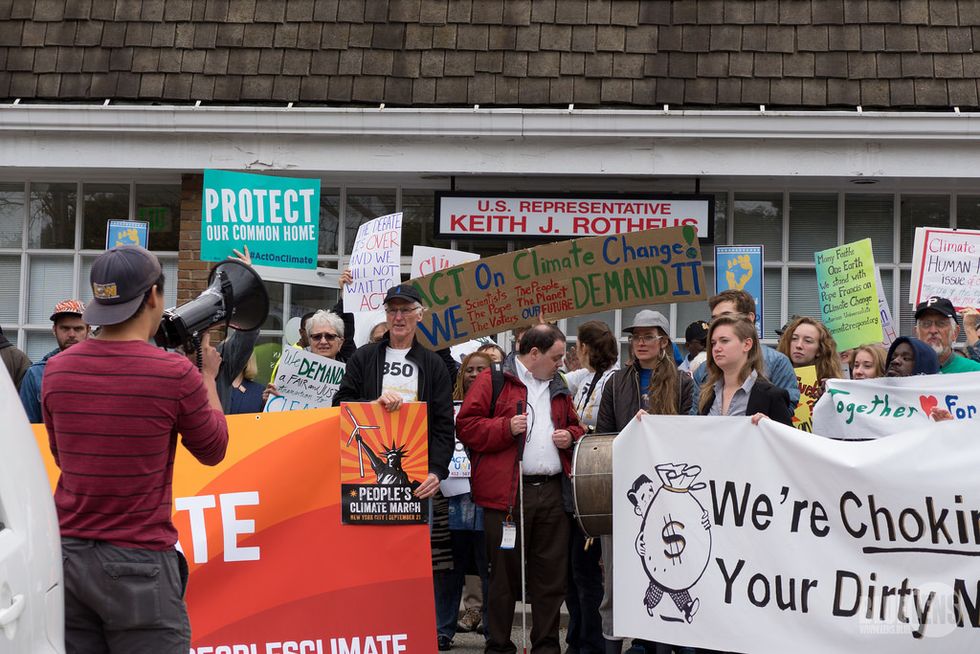As we know, climate change is often treated as something that is doomed to happen hundreds of years from now. However, the UN recently came out with a climate report that discussed the realities of our Earth right now and what its future looks like.
Over the past few years, there has been a massive increase in how destructive hurricanes have been. This is caused by the heating of the Earth's temperature, which in turn, causes the oceans to rise. In fact, from 1880 to 2012 there has been an increase in temperature by 0.85 degrees Celsius — which may not sound like a lot, but it is certainly enough to do damage.
So, what will our future look like at this rate?
Well, the report declares that, should the world warm more than 1.5 degrees Celsius, which it will do as soon as 2040 if current trends continue, nearly all coral reefs would die out, wildfires and heat waves would sweep across the planet annually, and the interplay between drought, flooding and temperature would result in the world's food supply becoming dramatically less secure.
Essentially, human civilization is at stake. At two degrees, the melting of ice sheets will pass a tipping point of collapse, flooding dozens of the world's major cities this century. At that amount of warming, it is estimated, global GDP, per capita, will be cut by 13 percent. Four hundred million more people will suffer from water scarcity, and even in the northern latitudes, heat waves will kill thousands each summer.
It will be worse in the planet's equatorial band. In India, where many cities now numbering in the millions would become unbelievably hot, there would be 32 times as many extreme heat waves — each lasting five times as long and exposing, in total, 93 times more people. This is two degrees — practically speaking, our absolute best-case climate scenario.
If you believe in conspiracy theories regarding the end of the world, get ready because this is NOT a conspiracy. This is real. Climate change can quite literally be the end of the world as we know it.
So what can YOU do about this?
Incorporate veganism.

Now, let me preface this by saying I am not suggesting that anyone should give up their entire diet and become a full-fledged vegan (unless they want to because it is ideal). I am aware that there are cultural and health reasons for people to consume meat and dairy.
However, the little things do matter. For instance, you can start drinking your coffee with soy milk and no whip from now on, only buy meat and dairy from local farms, cut red meat from your diet or make sushi from home.
Large-scale agriculture is extremely dangerous for our climate. It was often treated as a liberal conspiracy to make people go vegan in the past. However, the UN report stated that largescale agriculture is one of the main reasons climate change is happening. By not supporting these industries, they will not have as much on an influence on our economy or our land.
Reduce, reuse and recycle.

Niihau trash beach located in Hawaii
Yes, this is quite a common phrase. I definitely grew up reciting this as a child. However, it is still applicable, if not more so, to our climate situation. More often than not, people don't clean up after themselves. This is a major issue because 80 percent of pollution in the marine environment comes from the land.
One of the biggest sources is called Nonpoint source pollution, which occurs as a result of runoff. Nonpoint source pollution includes many small sources, like septic tanks, cars, trucks and boats, plus larger sources, such as farms, ranches and forest areas.
Millions of motor vehicle engines drop small amounts of oil onto roads and parking lots each day. Much of this, too, makes its way to the sea. This, in turn, ruins our coral life and hurts the organisms. This is why legislative action in California has been taken to ban the use of plastic straws. Throwing your trash away isn't enough.
Recycling your plastic and using reusable objects, such as reusable straws and grocery bags, also make a massive difference. They also make great little gifts for friends and family!
Vote!
Voting for politicians that refuse to take corporate fossil fuel money and pledge to help save the environment is absolutely key to legislative change. Voting is not just something that one does for fun. It is a civic duty that can literally save lives. Register to vote here!
Be active.

Be politically active, even if it's just phone banking for a local candidate or donating a small amount of money to them. A little bit goes a long way, and helping those who want to protect the planet is the best thing you can do in this heavy political climate.
Once midterms are over, you can still participate by organizing and attending climate change protests and calling your representatives. There is always room to learn and grow in this respect. Find what works for you!






















